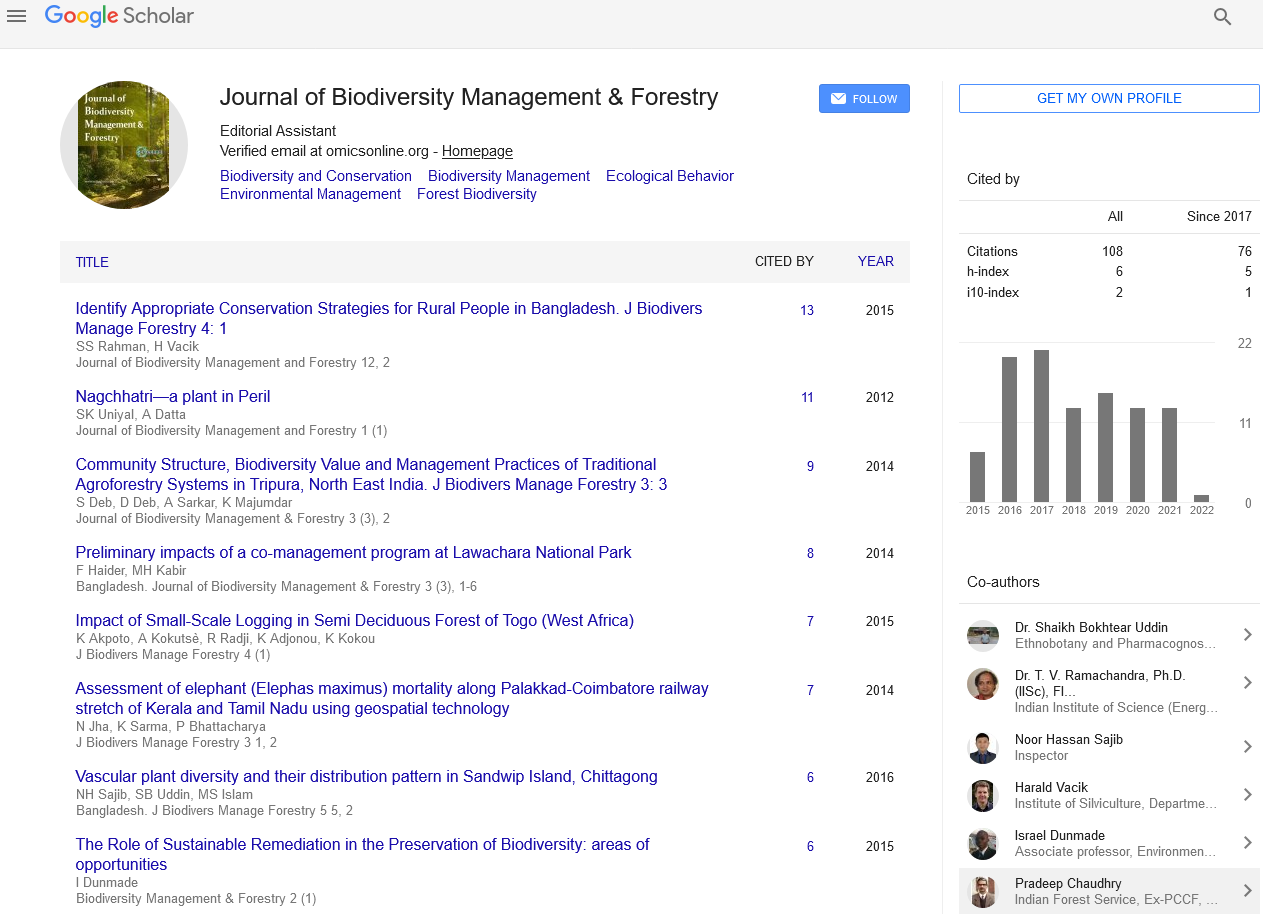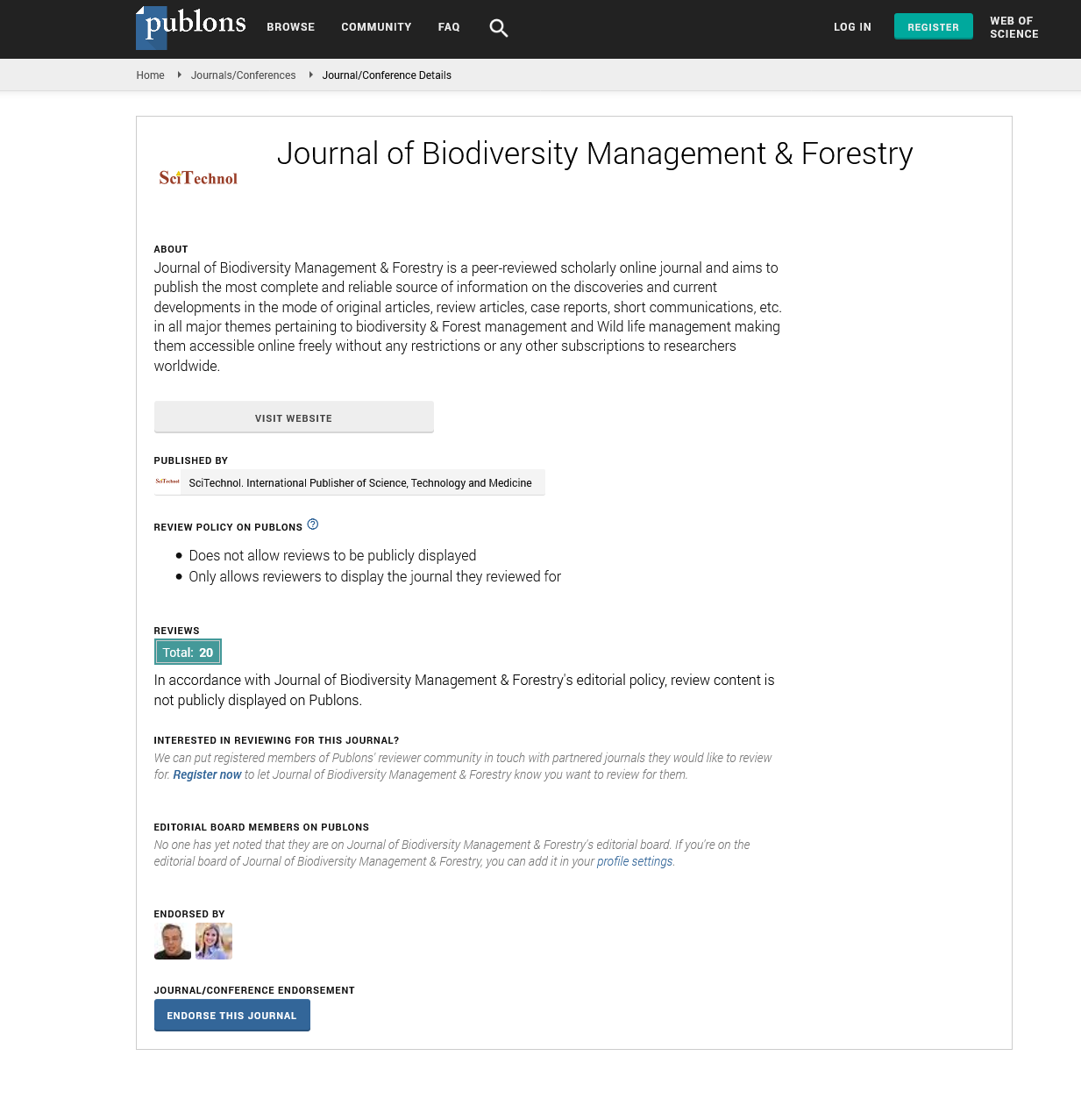Research Article, J Biodivers Manage Forestry Vol: 3 Issue: 4
A Survey of Attitudes towards Human-Baboon Conflicts in a University Campus in Ethiopia
| Murali Pai* and Seada Aliwo |
| Department of Biology, Arba Minch University, P.O. Box 21, Arba Minch Gamo Gofa Zone, SNNPR, Ethiopia |
| Corresponding author : Murali Pai Department of Biology, Arba Minch University, P.O. Box 21, Arba Minch Gamo Gofa Zone, SNNPR, Ethiopia E-mail: murali.pai@amu.edu.et |
| Received June 19, 2014 Accepted October 16, 2014 Published October 20, 2014 |
| Citation: Pai M, Aliwo S (2014) A Survey of Attitudes towards Human–Baboon Conflicts in a University Campus in Ethiopia. J Biodivers Manage Forestry 3:4. doi:10.4172/2327-4417.1000131 |
Abstract
A Survey of Attitudes towards Human–Baboon Conflicts in a University Campus in Ethiopia
A study on human-baboon conflicts was conducted by undergraduate researchers in Biology at Arba Minch University (AMU). Its aim was to survey residents in the Main Campus of AMU affected by increasing conflicts between people and olive baboons (Papio anubis). Baboons raid residents housing for food, damage buildings and have been trapped and released in alternate sites in the past. A survey questionnaire with 20 questions was distributed to residents (n=60), the responses coded, and the data statistically analyzed using software STATA 11. The results of the survey have given new insights on baboon conflicts with people in AMU Campus. Most people want issues concerning conflicts with baboon to be dealt with ‘as is where is’ basis and not by getting rid of them. On the other hand, the same majority does not seem to equate baboons with wildlife and don’t believe it is important to conserve them. This perception is probably stems from the nuisance value of baboons, given the threats they pose to human safety and property. In conclusion, an awareness drive is needed to try resolving human-baboon conflicts and achieve human-wildlife coexistence in a rapidly urbanizing Ethiopia.

